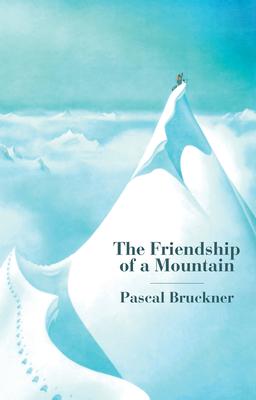Why are we fascinated by mountains? These outcrops of rock were once considered unsightly, something to be avoided at all costs, but, since Rousseau, they have been contrasted with our corrupt cities and viewed as serene enclaves of beauty and relaxation.
But why climb to the summit only to come back down again? Why does the toil of climbing convert into joy? What metaphysics of the absolute is playing out here - what challenge does climbing pose to time and ageing, to fearful panic, to the brush with danger which leads to conquest? It's not faith that elevates mountains - it's mountains that elevate our faith in challenging us to overcome them. These hooded majesties crush some people while exalting others. For the latter, climbing means being born again, reaching a state of exhilaration. Being seized by exhaustion upon arriving at the summit is akin to casting your eyes upon paradise. Is it the stinging cold, the wind so strong that it almost knocks you down, or is it higher powers that speak to us in this mixture of terror and beauty?
A child of the mountains who spent his youth in Austria and Switzerland, Pascal Bruckner has special ties to the subject of this book: the further he climbs, the more he reconnects to his past. In sparkling and sensual prose, Bruckner's paean to the majesty of mountains weaves together things seen and things read, childhood memories, literature and philosophy, interlaced with reflections on life, ageing and the unrivalled beauty of an ecosystem that we are in danger of destroying.
